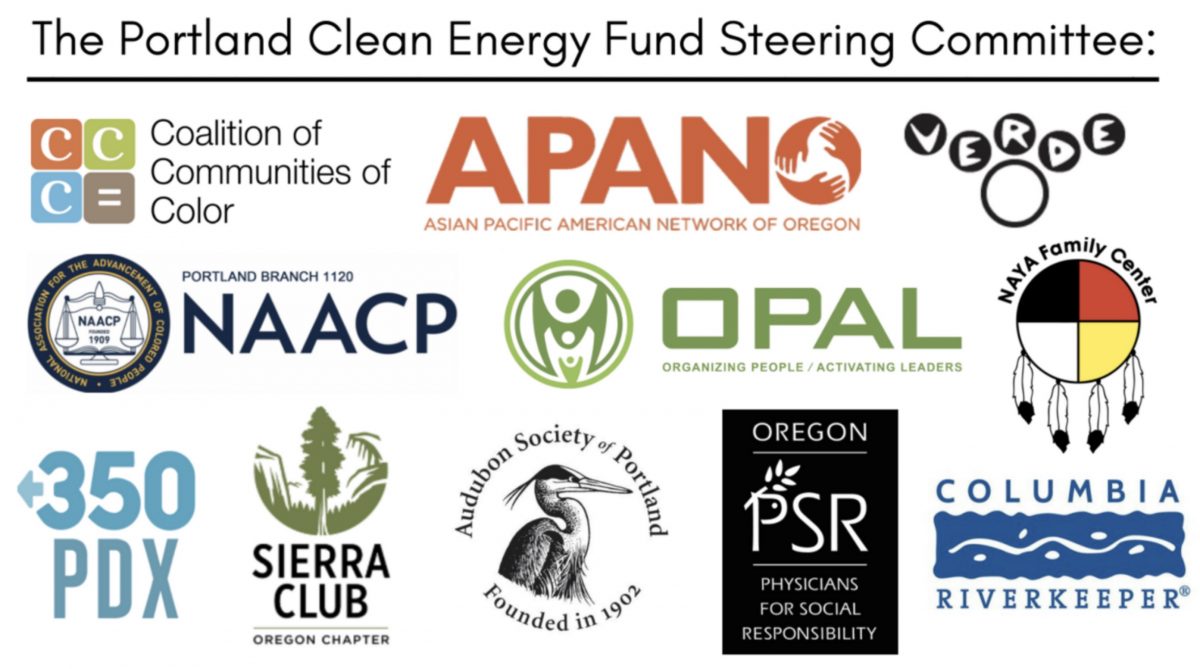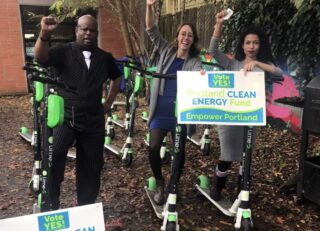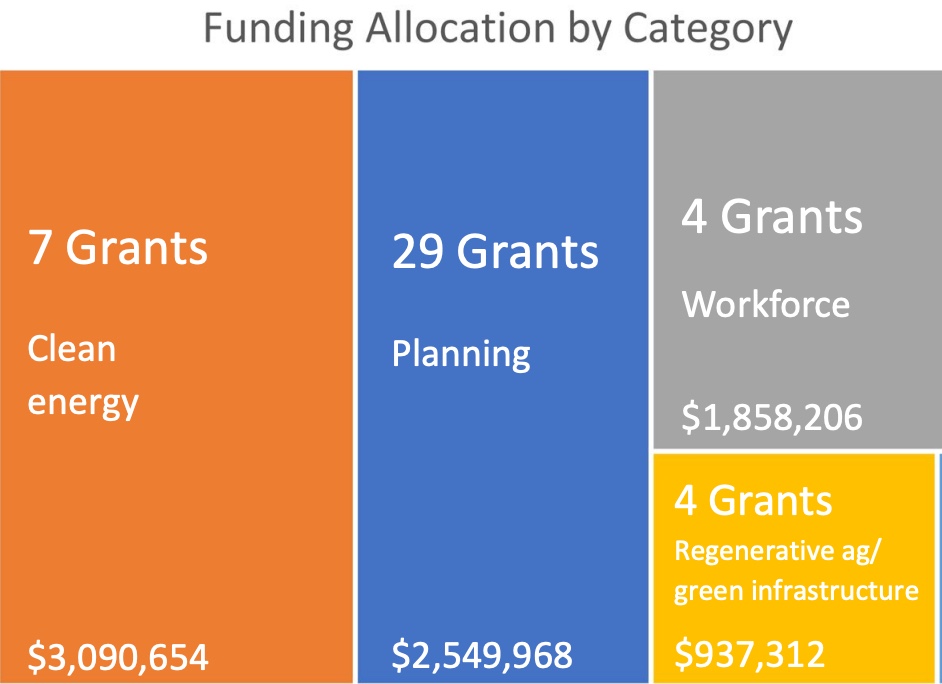
This week Portland City Council voted to fund a list of 45 projects worth $8.6 million as part of the Portland Clean Energy Fund (PCEF). It’s just the first tranche of what’s expected to be a much larger annual haul in years to come. The money is raised by a 1% fee on the business income of large national retail corporations.

“Portland is leading the way on what a Green New Deal looks like,” said Commissioner Jo Ann Hardesty, in a statement yesterday.
Far more than just another government effort to tackle climate change, the success of PCEF matters because it represents how Portland advocacy and politics is responding to our collective reckoning around racial and social justice. It’s also notable that despite the transportation sector being the largest contributor to greenhouse gas emissions in Multnomah County, transportation projects were largely absent from the list of grantees.
Of the 45 projects, only two grants went to transportation-focused nonprofits. The Getting There Together Coalition (which came together to create the Metro funding measure that was opposed by voters in 2020) won $90,460 to, “determine the best community engagement practices with their priority populations and to confirm their needs related to transportation policies,” and electric vehicle nonprofit Forth won $84,300 to study how diesel school buses impact students and to explore bus electrification potential.
Advertisement


(Photo: Portland Bureau of Planning & Sustainability)
The PCEF was created via a ballot measure that passed in 2018 with over 64% approval. From its genesis in 2016, it was created to bring new community groups to the environmental advocacy table — specifically groups led by people of color and others who have been historically underrepresented. “As the nation’s first-ever climate-fund created and led by communities of color, PCEF is for and by the community. PCEF centers Black and Indigenous people, and other disadvantaged and marginalized groups in addressing the climate crisis,” reads the program’s website.
One of the community organizers who spearheaded the effort was Khanh Pham, who now represents Portland’s 46th District in the Oregon House of Representatives. According to Pham, she and other leaders spent two-and-a-half years building their coalition before they launched the campaign. In a video (below) about the successful passage of the measure in 2018, Rep. Pham said the coalition represents a “new progressive majority in town.”
“Oregon has a long history of white supremacy and you can see it even in our environmental movement,” Pham continued. “Middle and upper-class homeowners tend to dominant the movement and benefit the most from our clean energy programs. This initiative shows that communities of color are passionate about, committed to, and dedicated to a just energy transition.”
It also shows that despite its vast GHG-reduction potential, transportation infrastructure and planning projects have not found their way onto the radar of this new, more diverse coalition that has gained considerable influence in recent years. For that to change, Portland’s bicycle and active transportation advocacy scene — which has historically been dominated by white, middle and upper-income activists — must evolve and build new relationships.
PCEF is an exciting success story. If the goal is to fight climate change it must embrace how we move around — and transportation reform activists must seek out its leaders and grab a seat at the table. That includes BikePortland! It’s embarrassing how little attention this site has given to this effort thus far. Stay tuned for more coverage!
Learn more about the PCEF at the coalition website and watch the video below:

— Jonathan Maus: (503) 706-8804, @jonathan_maus on Twitter and jonathan@bikeportland.org
— Get our headlines delivered to your inbox.
— Support this independent community media outlet with a one-time contribution or monthly subscription.

